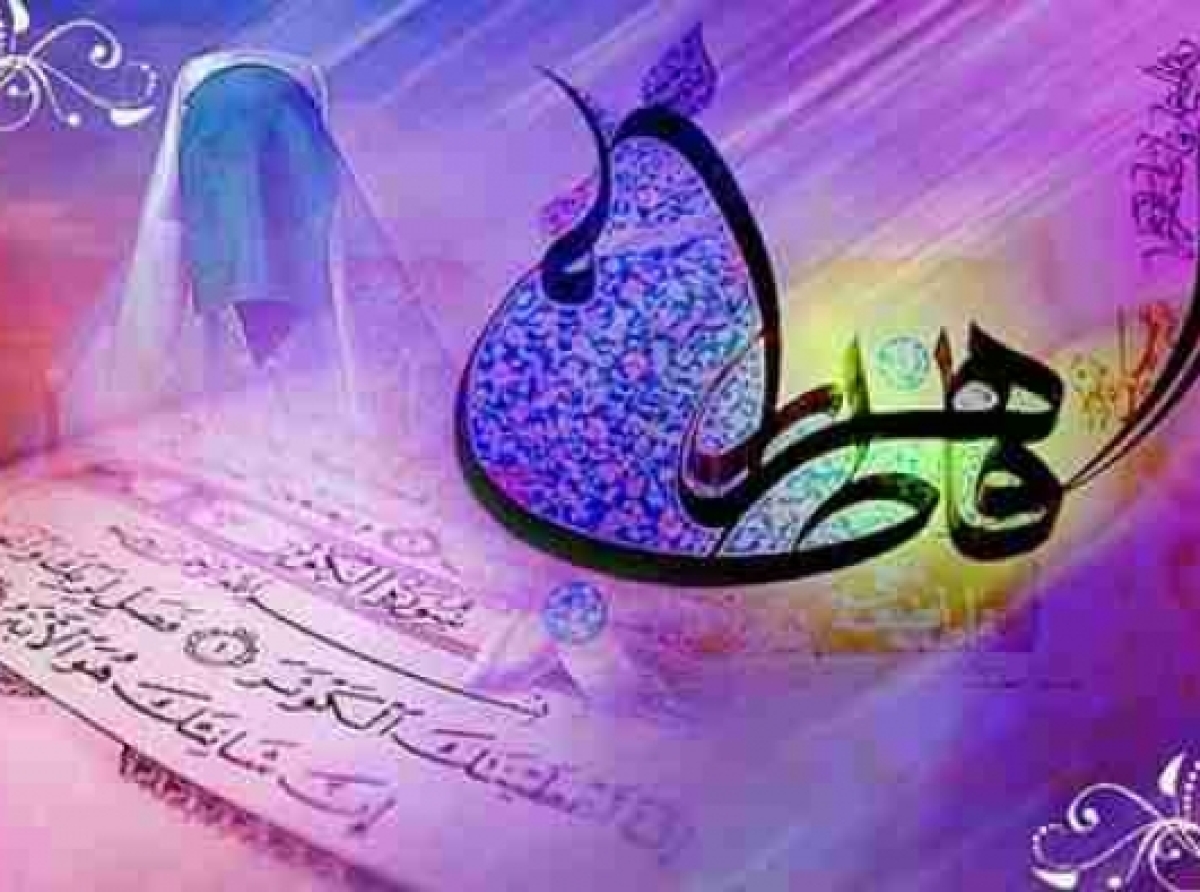((The most perfect women in the world))
When we want to talk about , historical characters, heroes and celebrities, we first talk about the year of their birth , death , place of birth and their history , But in this article , we intend to address the social presence of women from the point of view of Hazrat Fatemeh and also her presence in society.
What has been narrated about the life of Hazrat Zahra (PBUH) indicates that she was in a proportionate and balanced relationship with her community: attending the battle of Uhud as a healer , while digging a ditch in the battle of the parties , the administration of sky grove , Having meetings to answer women's religious questions , as well as defending Islam and the province in the most critical situation of the Islamic community, such as attending the mosque and exposing the conspiracy of the hypocrites and ill-wishers with their scathing and enlightening speeches, and defending the right and the province, are cases. Which can be mentioned in their lives.
Salman farsi narrates a story : Hazrat Fatemeh (PBUH) was sitting and in front of her was a millstone with which she was grinding with the atmosphere and the handle of the mill was bloody and Hussein (PBUH) (who was an infant at that time) was crying from hunger next to the house.
I said to that Imam: daughter of the Messenger of God! This is a waste, get help from him in household chores! Hazrat Fatemeh (as) said: My father ordered me to do the housework one day from me and one day from fezeh.
Yesterday it was Fezeha's turn (and today it is my turn). Hazrat Zahra (PBUH) said: I am more worthy of silencing Hussein, you should grind the barley.
This story shows that Hazrat Zahra , peace be upon her, met and talked with the non-mahram in accordance with the rules, and her intention in saying that was not to cut off communication with the non-mahram and to be isolated.
In fact, if we study and meditate on the verses and hadiths of Islam, we will come to the indisputable principle that Islam restores a woman's personality and preserves her human dignity. Islam gives women, like men, economic independence and gives them social rights.
Like men, women can participate in social, economic, political, and cultural activities in accordance with Islamic laws and regulations, and in many cases, women may participate in society and take on public responsibilities like men, such as holding women's affairs. In society and enjoining the good and forbidding the evil.
Of course, participating in public activities and taking on responsibilities is a positive and constructive matter if it is within the framework of divine and religious regulations. Because the criterion in individual and public activities is the preservation of Islamic values and piety, and there is no difference between men and women.
Professor Motahari says in this regard: "What causes the paralysis of women and the imprisonment of their talents is the hijab in the form of imprisoning women and depriving them of cultural, social and economic activities, and there is no such thing in Islam.
Islam does not say that a woman should not leave home, nor does it say that she has no right to study science, but she considers science and knowledge to be a common duty of men and women, and does not prohibit certain economic activities for women.
Islam never wants a woman to sit idle and become void, covering her body with the exception of her face and shroud does not prevent any cultural, social or economic activity. "What paralyzes the power of society is polluting the workplace with sensual pleasures."
If it is narrated from Fatemeh Zahra (PBUH), the characteristic of a Muslim woman is that neither a non-mahram man should see her nor she should see a non-mahram man. To observe the Islamic rules in such a way that it does not cause the view of the non-mahrams to be forbidden, and to observe the limits and limits in relation to the non-mahrams , Or does this mean that women's affairs should be managed by women themselves so that there is no need to contact a non-mahram man? It is through this that Fatemeh Zahra (PBUH) says: It is in the best interest of women to live in such a way that neither foreign men nor foreigners fall in love with her.Fatemeh Zahra (PBUH) herself was in the context of social and political issues. While serving the Muslim community, he always defended the truth, Islam and the Ahl al-Bayt.
Writer : Fatmeh.Abbaszadeh

 En
En  Fa
Fa 